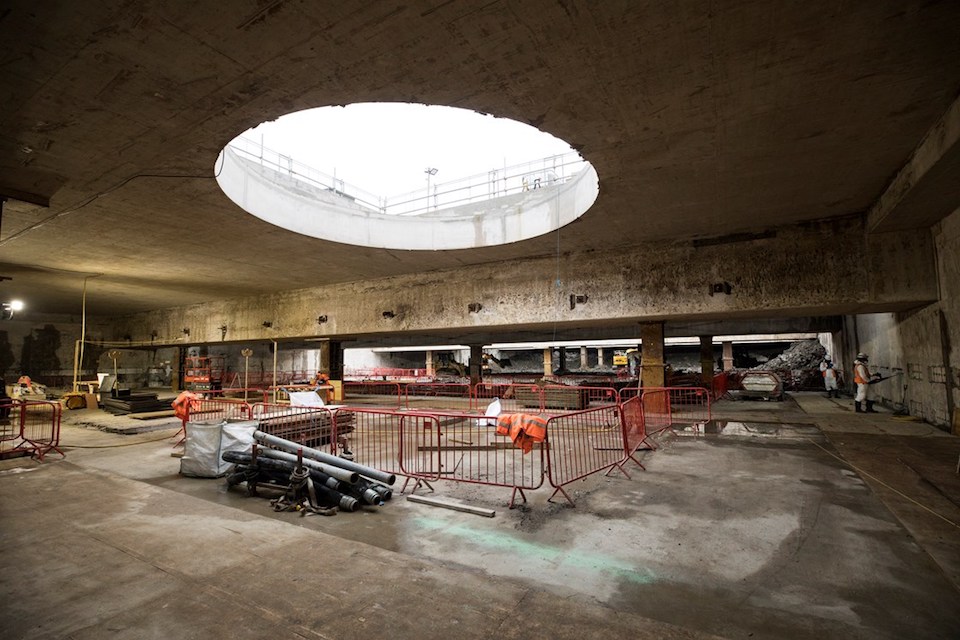HS2 now under government scrutiny

The UK government-backed high speed rail project, HS2, is to pass from government oversight to … government oversight. The arms-length government quango set up to deliver the new line between London and Birmingham has been told that the UK government will bring it to heel, in the light of spiralling costs, delays and controversies. The line has become the most expensive peacetime infrastructure project in British history, but it is still almost a decade away from delivering its first service.
The change of government in the UK has brought about a radical shift in managerial direction for the much-troubled HS2 project. Amid a crippling national debt crisis, the new Labour government has called in the London to Birmingham railway project. Now, instead of the largely autonomous company set up by the previous administration, the construction progress will come under the direct management of the Department for Transport.
Cost breaching nine figures
It’s all change for HS2 – again. In an extraordinary move, the new UK transport secretary, Louise Haigh, has said enough is enough. The minister told Parliament that after close scrutiny of the project, she believed the scale of failure to be nothing short of dire. “I have promised to work fast and fix things,” she told media and parliamentary colleagues. “That’s exactly why I have announced urgent measures to get a grip on HS2’s costs and ensure taxpayers’ money is put to good use.” Estimates have put overspending on the project at somewhere between ten and twenty billion pounds, perhaps even £22bn.

HS2 was so named because it was intended to build on the success of the Channel Tunnel Rail Link, which had later become a mixed-traffic route designated as “HS1”. The grandiose HS2 project was initially intended to fan out from a purpose-built terminal in London, to serve Birmingham, and then on to Manchester and the West Coast Main Line (WCML), as far as Glasgow. A separate line would have branched off to reach Nottingham and Derby, Sheffield and Leeds, and on to the East Coast Main Line, to serve Newcastle and Edinburgh. It was originally budgeted at around £32bn (€37bn). However, with costs going through the roof faster than the 225mph (360kph) trains and the bill breaching nine figures, radical cutbacks were made. Now, the network is reduced to a proposed shuttle service between London and Birmingham, but the bill is still over £66bn (€77bn).
Controversial cancellations
Haigh’s action has been met with a degree of approval from the British taxpayers. “Not before time,” is the general mood. HS2 has been perceived as increasing in cost at the same time as diminishing in benefit. It has been argued that the name is a misnomer. The project’s prodigious communications effort soon pivoted to emphasising the capacity benefits the line would bring. However, those benefits are marginalised, if the line does not connect to the busy north-south routes, particularly the West Coast Main Line – already Europe’s busiest mixed-traffic route.

While the prospect of reining in the project’s rampant spending is good news, the transport secretary has said that despite the capacity benefits it would bring, the government is not in a position to reinstate any of the cancelled networks. That principally means there will be no extensions to directly connect with the WCML at Crewe, nor a line to Manchester—the most controversial of all the cancellations.
One person may be happier than most about the news of bringing in cost control measures to the HS2 project. Chancellor of the Exchequer, Rachel Reeves, has repeatedly stated that the UK economy faces a funding gap of £22bn. Her budget – due to be delivered to Parliament on 30 October – is in dire need of a fiscal boost. If HS2 costs are brought under control, then the well-proven economic benefit of the railways could come to the treasury’s aid – in a most unexpected way. Some accountants have put the level of overspending in the HS2 project at as much as £22bn. Now, doesn’t that figure seem familiar?
You just read one of our premium articles free of charge
Want full access? Take advantage of our exclusive offer
Are you already a subscriber?




